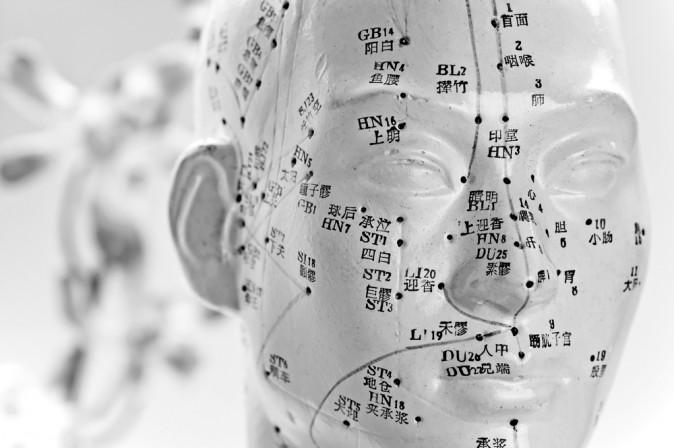In traditional Chinese medicine (TCM), the body’s electromagnetic field is seen to flow through channels called meridians, which correspond with a pattern of points on the surface of the body. An acupuncturist inserts fine needles into these points to adjust the meridians and keep the energy circulating properly.
Evidence suggests that acupuncture may be at least 5,000 years old, but it wasn’t available in the United States until the 1970s. The World Health Organization (WHO) has determined that acupuncture is an effective treatment for over 30 diseases and conditions. Treatments for many more ailments show promise, but WHO says more research is still necessary.
TCM’s long history of safety and its growing reputation for efficacy—earned by good results in modern clinical trials, has today brought more people than ever to seek out acupuncturists for treatment.
Along with this growth in popularity has come the need to make sure acupuncturists are properly certified.
National Certification Commission
Forty-four states offer a license to practice acupuncture, and there are over 30,000 licensed practitioners across the country. The National Certification Commission for Acupuncture and Oriental Medicine (NCCAOM) sets the standard for practitioners (except in California, which has its own state exam).
The NCCAOM requires acupuncturists to log over 2,000 hours of training at an accredited school and pass a series of competency exams on point location, TCM fundamentals, and biomedicine. Further training and exams are required for certification in herbal medicine and bodywork.
Underqualified
NCCAOM makes rules for the profession, but it doesn’t write the law. Thus, many practitioners provide needle treatment with far less training or scrutiny.
According to NCCAOM spokesperson Mina Larson, medical doctors in every state (except California) can legally practice acupuncture with little education. Many states permit chiropractors, physical therapists, and naturopaths to practice acupuncture with similarly abbreviated training.
“One hundred or two hundred hours of training is not even comparable to 2,000 hours,” Larson said. “It’s a concern because if someone is going to see an acupuncturist, they want to get a total assessment of what’s going on with their body using the Chinese medicine theory, not just a couple of points.”
While acupuncture can successfully address many aspects of internal medicine, practitioners who lack a deep understanding of TCM are likely to stick to specific pain-management techniques. These practitioners may use similar equipment, but their treatments can differ substantially from someone trained in the holistic approach of TCM.
“If you’ve got back pain [and] nausea, it might all be connected. A certified acupuncturist can address those connections,” Larson said. “It’s a whole lifestyle. There’s a lot more to it than acupuncture alone.”
Physician Certification Standards
The highest requirement for physicians in North America is 300 hours of self-study and at least two years of practice. However, some states do not require physicians to have any training at all.
For those who want to get acupuncture from a medical doctor, Larson said that some physicians have embraced Chinese medicine and are fully trained in TCM in addition to their medical degree.

Oriental medicine is very complex and a practitioner needs to study extensively in order to understand it.(Photos.com/thinkstockphotos.com)
Education Is Key
Elie Goldschmidt is an acupuncturist licensed in New York. His website Tryacupuncture.org aims to shed some light on the widely varying proficiency levels among acupuncture providers.
“The best way for a patient to find a really qualified acupuncturist is based on the education. How many hours and years did they go to school specifically learning acupuncture and traditional Chinese medicine? If the answer is 100 hours or a few weekends, that’s a red flag,” he said.
Goldschmidt estimates that more than half of U.S. acupuncture providers are minimally trained. For consumers seeking treatment, going to an underqualified acupuncturist may give them the wrong impression of TCM.
“The more education, the better the chance to get a safe treatment, and also better outcome of treatment,” he said.
Acupuncturist Directory
The NCCAOM website allows consumers to search for nationally certified acupuncturists in their area. The commission’s find-a-practitioner directory also identifies acupuncturists who have advanced TCM expertise—those fluent in Chinese herbology, Asian bodywork, and the most comprehensive certification, a Diplomate of Oriental Medicine.
The Right Fit
Once consumers gather a list of qualified local practitioners, they can seek further details to find the right fit. Here are some questions to consider:
• How much time does the practitioner spend with each patient?
• What are their areas of expertise?
• Do they have experience treating similar conditions?
• What do they charge per treatment?
Insurance Coverage
While some insurance policies cover acupuncture, many do not, but that may soon change.
A non-discrimination clause in the Affordable Care Act—Section 2706—requires insurance to cover treatment from any licensed health care practitioner. However, such coverage depends on interpretation of the law.
In February this year, the White House rejected a petition to cover acupuncture through Medicaid because it was not deemed medically “reasonable and necessary,” despite evidence that patients who receive treatment recover faster and use fewer drugs.
To see if your policy covers treatment from a licensed acupuncturist, you can contact your insurance representative.
Cost
Sessions typically range from $50 to $100 or more, but consumers on a budget have other options, such as community acupuncture clinics (where several people receive treatment in the same room at the same time) and student clinics at Oriental medical schools.
*Image of “acupuncture head model“ via Shutterstock






